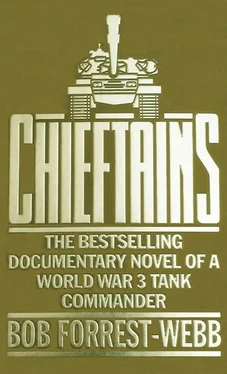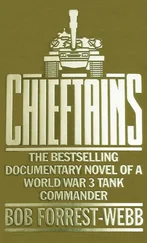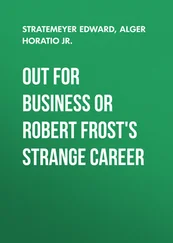Davis wondered what it was like for the Russian tank crews. Perhaps in some ways better; at least they were moving forward. But into what? Minefields! The leading tanks armed with rollers and ploughs to clear the treacherous and deadly ground… wedged up against ditches and streams where they became stationary targets for the Milan crews or the gunships. And here against the well-prepared defences, unable to use the natural cover until it was cleared of mines by their engineers. No, it wasn’t better for them, and it was probably psychologically worse… they had everything to lose, and not much to gain… only someone else’s piece of ground to die on.
Imagine being up there watching, he thought. Up there, not like God, but just up there. In a command helicopter well up out of harm’s way if there was such a place; looking down and seeing it all happen. Like the time he had flown into Berlin, and seen the East German minefields stretching as a dark ploughed road as far as he could see in both directions from the windows of the aircraft; only now the border would be a band of fire and smoke cutting Europe in half. How wide was the devastation and destruction? Would it go on expanding until the whole world was one huge smoking ruin?
Inkester called, ‘Infantry… I think I can see Russian infantry!’
Davis swept the ground through the smoke with the 7.62mm machine gun, pleased to give himself something to take his mind off the devastating artillery bombardment. He stopped firing, and watched through the episcope as a British Saracen disgorged its men sixty meters to his left; ten infantrymen, clumsily-suited and cradling their SLRs, alien in their respirators, comforting. Replacements; infantry to fight infantry. Davis wanted more of them to appear, supported by some fresh armour to charge forward and roll it all up, get it. over with. They wouldn’t come, it was a waste of time even thinking about it.
‘Charlie Bravo One… this is Shark. Soviet air-drop to the rear… about two Ks back, at Cyanide… some light armour. We’ll hold here until it gets too hot, then move to Potash… out.’
‘Roger, Shark,’ acknowledged Davis.
Airdrop, bloody hell. And behind somewhere. That was bound to be the way they’d do it; they weren’t going to get themselves shot to hell in order to ford some pissy little river; they’d just put up a diversionary artillery barrage, and then air-drop their troops past the defences. Sod crossing minefields and bridging ditches. They would secure the bridgehead by an airborne assault first. Gas! That was bloody obvious, too. Someone should have had those poor infantry bastards in their respirators since first shot yesterday… bloody disorganization… too many bosses up top… too bloody far away from the battlefront. No, that wasn’t true. The colonel had been right up there with them… Colonel Studley in his Chieftain, out there in the battle like his crews. Bloody good for him; he was… had been the sort of colonel you wanted to fight under… poor sod.
‘Armour! What the hell?’ Inkester’s voice, anxious. ‘Range six hundred…’ The Chieftain lurched on its suspension as Inkester fired. ‘What was it, sir? The wreckage of the vehicle was hidden in the smoke.
‘An MT-LB… worry about what’s coming, lad, not what’s gone.’
12.00 hours. Day Two
‘They look like dead rats, Jesus, they look like rats!’ Inkester was staring ahead at a heap of Soviet paratroopers’ bodies beside the shattered walls of a derelict barn. The corpses, twisted, torn and bloody, were still dressed in their NBC protective clothing and long brown-muzzled respirators.
Only minutes before the Russian paratroopers had been alive, manning a pair of RPU rocket launchers; the guns of Charlie Bravo Troop’s tanks had opened up on them and Davis had driven the Chieftain into the courtyard of the farm buildings with his machine gun blazing. You could demolish a wall, row by row of bricks, with a 7.62mm. It did terrible things to the human body.
The squadron had pulled back from the river… retired five kilometers in a series of leapfrogs; tank protecting tank, troop protecting troop. Today, thank God, there had been fewer losses so far. Only two tanks gone from the squadron, and Bravo Troop still intact. It was the infantry who were having the hardest time, sweating blood as they fought in their clammy suits, dying from the bullets and shrapnel, or the gas when the, blast of a nearby explosion stripped the protective clothing from their bodies.
Davis had watched them die. First the infantrymen beside the Chieftains at dawn, then their replacements, killed more horrifically by a mortar bomb, screaming, shrieking, with the combination of broken bodies and searing gas droplets in open wounds. It was macabre to Davis that men should end life as they entered it, bloody and reluctant.
How many men had Davis killed this morning? Thirty. No, thirty was yesterday! Yesterday? Today? Not men today… brown-muzzled rats… giant rats… vermin. He would never count victims again.
‘Fuckin’ compo rations! Stodgy steak and kid… glue soup.’
‘If you can eat cold egg banjos, you can bloody eat anything.’
‘What about tea, Stink?’
‘Piss off, Inkester. I ain’t your batman. There’s no time for food.’
‘Don’t you piss off to me, Stink my lad. Get your grubby finger out and mash char.’
‘Bollocks!’
Back six more kilometers; three villages defended until they were blown to ruins around them. Lost, Bravo Three and another five tanks of the squadron. Eight tanks gone… every crewman dead. There was no survival. When they baled out it was too late, the gas had got them through punctured hulls. A brief respite now, there were two villages between Bravo Troop and the Russian armour… and in the villages the other troops of the squadron waited, and with them the infantry with their missiles and mortars. Somewhere, always in the rear, was the battalion’s artillery; their guns red hot, the paint burnt from the barrels. The gunners trying to cool their weapons with buckets of gas-contaminated water, to prevent the charges exploding prematurely in the breeches as they were loaded.
‘’Scuse me, sir. I’ve got to have a shit.’ Inkester wriggled sideways in his seat below Davis’s knees.
‘It’s those bleeding egg banjos…’ DeeJay’s observation was unsympathetic.
‘For Christ’s sake, DeeJay. I’m not doin’ it so’s I can play with myself. It’s fucking urgent. There’s no sign of gas on the suit indicators.’
‘Get it over with,’ suggested Davis. ‘And make it quick. Anyone else want to relieve themselves? We may as well all get it done at the same time.’
‘Don’t miss the bloody bag, Inky. Your bare arse is just above my head. And don’t toss your gash into my driving compartment. Cor, bloody hell, stroll on!’ DeeJay made exaggerated gasping noises.
‘You may as well break out some rations, lad,’ Davis told Spink. He was thirsty, his mouth dry and tasting as though he had spent the whole of the previous night drinking. Night? He looked at his watch. It was 16.00. The second day had almost gone. Another four hours and it would be darkness again. It had been dawn when he had last had a drink. ‘Better make tea, lad.’ When had he eaten last? Sometime during the night! But he didn’t feel hungry. Had he slept at all? An hour at the reforming area.
‘I could do with a ciggy,’ Inkester had shrugged his overalls back on to his shoulders, stowed away his waste bag and settled himself into his seat again.
‘Forget it.’
‘These seats give you piles, sir… well, a sore arse. What’s happening, sir?’
Davis ignored him. ‘What ammunition have we got left, Spink?’
Читать дальше












